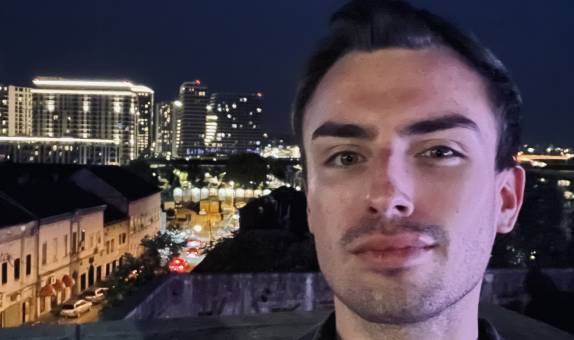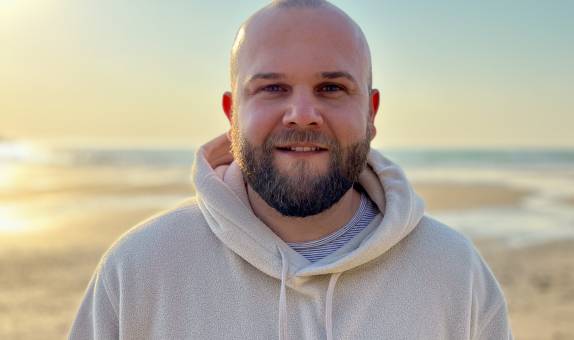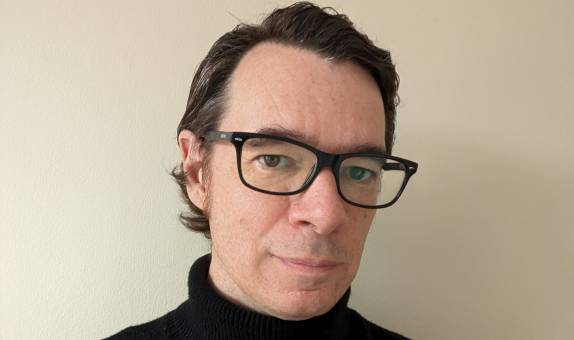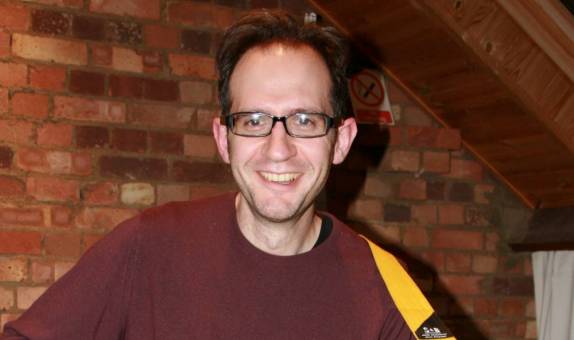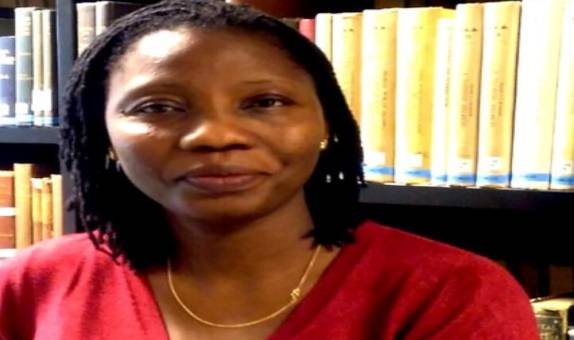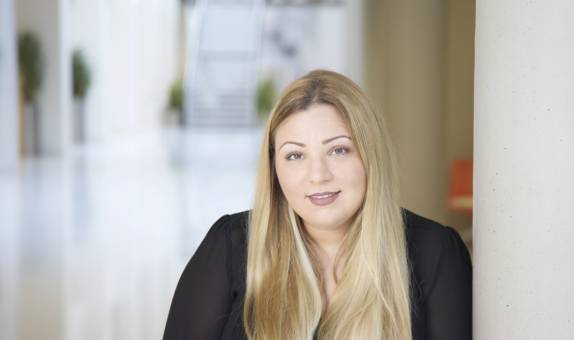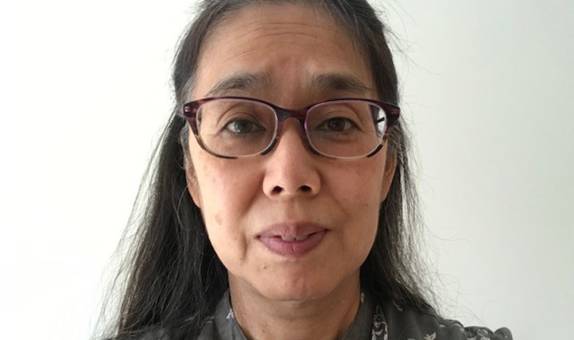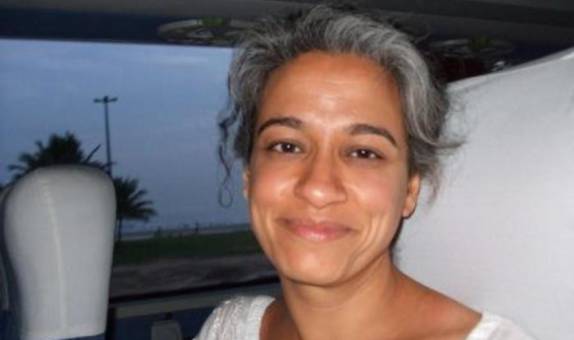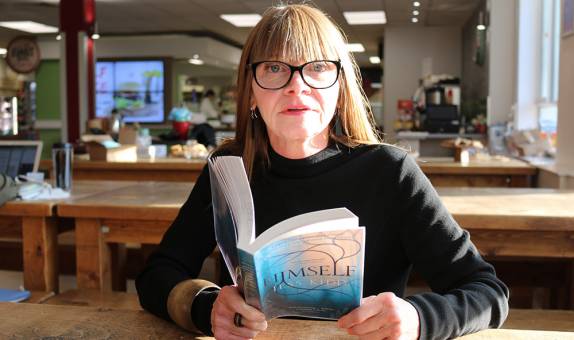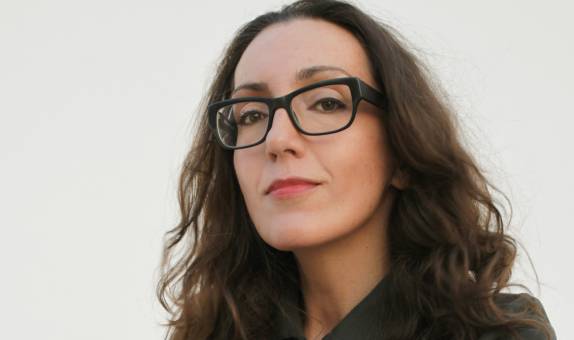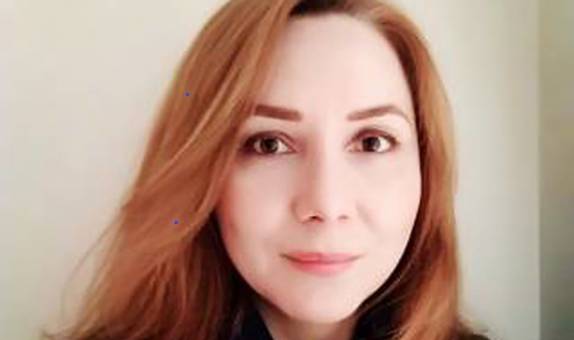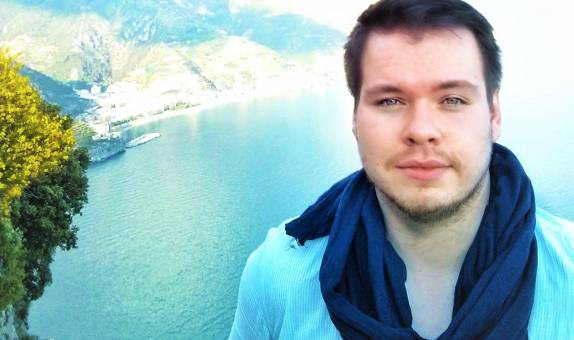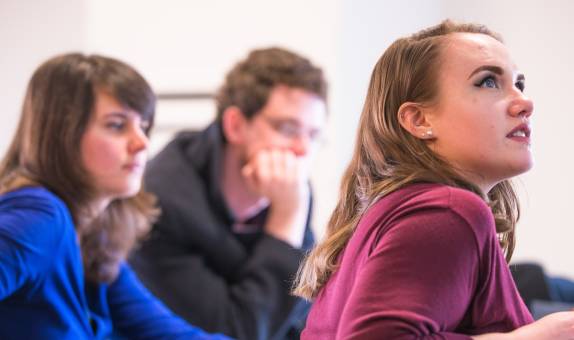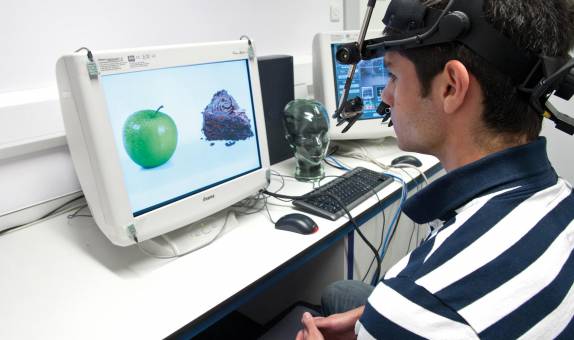Sociology BSc (Hons)

Teaching Excellence Framework (TEF) Gold award
Our commitment to high quality teaching has been recognised with a TEF Gold rating. The University has received an overall rating of Gold, as well as securing a Gold award in the framework's two new student experience and student outcomes categories.
Why choose this course?
How can we better understand today's social inequalities? What can we do to solve them? What impact has globalisation had on our every day lives? How does our culture and society shape our identity and how we evaluate others? These are the types of questions we examine in our sociology degree.
You'll look at many areas of social life, such as gender, race, religion and class, family, migration and social change, to understand how power operates, how individual behaviour, norms and values are shaped by the social world, and how conflict exists and is resolved.
Throughout the course, you'll be asked to reflect on your own life experiences and to consider contemporary real-world issues and events. You'll make connections with ideas and arguments from other social sciences, such as psychology, criminology, and politics. You'll take your learning out of the classroom, broadening your experience of work environments and cultural spaces such as museums and galleries.
| Attendance | UCAS code/apply | Year of entry |
|---|---|---|
| 3 years full time | L300 | 2024 (Clearing) 2025 |
| 4 years full time including foundation year | L301 | 2024 (Clearing) 2025 |
| 4 years full time including sandwich year | L302 | 2024 (Clearing) 2025 |
| 6 years part time | Apply direct to the University | 2024 (Clearing) 2025 |
Please note: Teaching on this course may take place on more than one KU campus.
| Main Location | Penrhyn Road |
Reasons to choose Kingston University
- This course offers you the academic and research skills to engage with a range of contemporary social issues, from social inequalities to race and ethnicity, migration, human rights, and global development.
- An optional work placement will enhance your learning and give you valuable work experience for your future career.
- Employability and academic progression are embedded at the core of your studies.
- There are opportunities to enrich your studies by participating in field trips.
- You'll be taught in a vibrant department with events such as student conferences and research seminars.
- 96.6% of students thought the library resources supported their learning (NSS 2023).
Studying Sociology at Kingston University
Kingston's Department of Criminology, Politics and Sociology
What our graduates say
What you will study
Take a look at some of the content and modules that you may have the opportunity to study on our Sociology course:
Year 1
Year 2
Optional year
Sandwich year
Final year
In Year 1, you will gain the theoretical grounding necessary to becoming a sociologist as you look at some of sociology's key thinkers whilst tracking the historical development of sociological theory from ‘classical' to 'contemporary'. You will be introduced to some of the most influential ways of thinking about self and identity, drawing on both sociology and psychology; and you will explore who is policed and disciplined in societal, popular and political cultures. You'll understand how researchers utilise qualitative and quantitative research methods and will gain hands-on experience of research skills.
Core modules
Social Order and Social Control
30 credits
We live in a diverse society: we all have different opinions, values, goals, abilities, and want different things out of life. So how do we all manage to get along, how does society hold together? This module explores the ways in which societies attempt to impose a shape on themselves, to keep order and reproduce their values and structures. We will look at both the formal and informal, proactive and reactive measures through which societies try to control their members, and what happens when people resist those controls. We will also ask questions about the politics, powers and interests that underlie attempts to shape society in particular ways.
Social Selves
30 credits
This module introduces students to some of the most influential ways of thinking about self and identity, drawing on both sociology and psychology. It deals with key dimensions of identity in contemporary life such as gender; work; sexuality; race; ethnicity; understandings of mental health; connections with places such as nations, cities and the globalised world; spirituality and religion. It explores the inseparable interweaving of society and the psyche; the psychological and the socio-political; collective forces and universal human drives. It places the ongoing process of constructing the self in the foreground in attempts to understand people's behaviour and development more generally. The very notion of the ‘self' is treated as an interactive, social phenomenon. The first part of the module considers the questions such as ‘what is the self?' and ‘how does the self arise?' The second part goes on to focus on a number of social dimensions which pattern selfhood. Students' employability is enhanced through the development of presentation skills as well as the ongoing development of analytical and critical skills through discussion and written work.
Classical Social Theory in a Contemporary World
30 credits
Classical Social Theory in a Contemporary World has two key objectives.
The first is to provide the theoretical grounding necessary to becoming a sociologist. It introduces students to some of sociology's key thinkers and tracks the historical development of sociological theory from ‘classical' to 'contemporary'. It presents a critical account of theory and by the end of the module students will have a repertoire of theory available to them.
The second objective is to make theory 'useful' by offering the professional tools necessary to apply it to a range of fresh, contemporary social issues.
Students are expected to demonstrate their full engagement with the module by keeping a regular, up-to-date personal research diary. This diary will be used to produce research notes relevant to everyday experiences. Students will be expected to reflect on these experiences within the context of the theoretical discussions in the lectures. They will be expected to discuss their diary entries in seminars.
The module teaches theory and its application and provides an appropriate theoretical and skills grounding for Levels 5 and 6.
Introduction to Research Methods
30 credits
This module will focus your attention on how social scientists have utilised a range of qualitative and quantitative methods to research social life in its various forms. This module grounds your understandings of research methods through the practical application of data collection and analysis, and critical reflection on the research process. You will gain hands-on experience of research skills throughout the module that can be applied to future study and employability.
You will also be introduced to Future Skills through engagement with Navigate; an innovative programme designed to support your personal and professional development, and your ability to articulate your skills and graduate qualities in an external context.
In Year 2, you'll explore a range of classic and contemporary thinkers to address the double role that sociology has inherited from its origins. You will understand the historical and theoretical conceptualisations and methodological approaches to researching ‘race' and ethnicity in contemporary society. Alongside this you will build upon your existing research skills. You will have the opportunity to specialise in your main interests via a choice of modules.
Core modules
Social Justice and Social Movements
30 credits
Building on the modules ‘Classical Social Theory in a Contemporary World' and ‘Social Selves', this module will develop the concept of ‘the sociological imagination', first outlined by the US theorist C. Wright Mills to indicate "the vivid awareness of the relationship between personal experience and the wider society" (1959). Although Mills was writing in the post-war era, the concept can be traced back to the development of the discipline as it emerged in response to the challenges of social life in industrial cities of the 19th century. Hence this module will use a range of classic and contemporary thinkers to address the double role that sociology has inherited from its origins: not just to understand the world, but to try to change it. This problem will be explored within the context of the city as a strategic unit of analysis in order to understand wider processes of modernisation, industrialisation and the subsequent onset of postmodernity and post-industrialism.
By studying original texts and placing them within their social and historical contexts, students will deepen their understanding of the discipline's critical engagement with different aspects of social life. There will be a strong focus on London with opportunities for fieldwork.
The module will be team-taught and will address the underlying questions: what role can sociologists play in tackling different forms of social injustice and inequality?
Researching Race and Ethnicity
30 credits
This module focuses on historical and theoretical conceptualisations and methodological approaches to researching ‘race' and ethnicity in contemporary society. Key questions that are interrogated on the module are: In what ways do the researcher and participants' racial and ethnic identities impact on the research process? In what ways are race and ethnicity shaped, and in turn shape, the experiences of class, gender, sexuality and religion? How do they intersect with other forms of social difference to affect relations of power and privilege? What are the ethical dilemmas of doing such research? How are different social contexts shaped by, and shape, race and ethnicity? What are the ways in which individuals, groups and communities challenge racism in order to raise awareness and contribute to social change? Throughout the module students will work to expand their critical thinking and research skills, make meaningful connections between theoretical concepts and lived experience, and to better understand how experiences of race and ethnicity interact with broader social structures.
Optional modules
Securing Human Rights: Contemporary Themes and Issues
30 credits
This module introduces the contested and evolving relationships between the theory and practice of securing human rights. It starts with an overview of key frameworks and mechanisms designed to secure rights at the international, regional and domestic levels. A central feature of the module is to introduce current critical themes, from which issues can be dissected and analysed through a range of contemporary and international case-studies. Key themes of the module may include (but are not limited to): human rights and populism, people on the move, free speech in a changing word, truth, justice and reconciliation', etc.
The module concludes by asking: what is the future for human rights?
Globalisation, Development and Social Justice
30 credits
This module provides an introduction to key concepts, debates and historical processes that surround the project of development in the global age. We explore ideas that are intrinsic to the way we think about development today in the historical contexts in which they arose and were fought over. We also examine how globalisation and development have reshaped our relationship to the earth at particular moments, and the often unintended environmental and social consequences of development.
Throughout this module, you will be encouraged to think creatively and expansively about how to tackle some of the most challenging issues that face us today. You'll hear from consultants, activists and campaigners working in the development sector, and learn how to ‘read the economy' not as an economist, but as a student of politics, international relations, human rights and social justice.
Religion and Belief
15 credits
Religious and non-religious belief systems (e.g. atheism, humanism) have widely been recognised by sociologists as significant influences on people's behaviour and the ordering of society. They are an essential source of meaning and identity, a reference for ethics and morality, and often a point of hope. They are also a basis for maintaining social order, and, sometimes, as a way of controlling and manipulating people.
The aim of this module is to explore the role and significance of religious and non-religious beliefs, practices and organisation in the contemporary world from a sociological perspective. The module will also consider how sociologists research religion and non-religion and come to judgements about them. In other words, 'What is involved in researching religion?' Students will have the opportunity to bring their theoretical understanding and research skills together in a small research project of their own.
Animals and Society
15 credits
Nonhuman animals are central to human societies, for humans use them for food, for clothing, for sport, for labour, as companions, as objects in zoos, as subjects in art, as scientific tools in experiments and tests, and as a way to ‘connect with ‘nature'. The social sciences are rich in perspectives and themes that are valuable for illuminating these human nonhuman animal relations. This module explores classical and contemporary theories about animals in society and draws on a range of perspectives and themes (for example risk in society, the sociology of the body, leisure and culture, consumerism, identity and identity politics, crime and criminal justice, and exploitation and oppression) to ask questions about human nonhuman animal relations. The module provides a forum in which the issues can be debated and subjected to scrutiny and where students can explore their own interests ultimately by completing the assignments.
Crime on Screen
15 credits
Crime on screen critically analyses the explosion of the true crime genre. Both new and old media are instrumental in our understandings of crime and the criminal justice system, but agendas change, and the framing of crime can be sensationalised, factually incorrect (trial by media) and/or insensitive to victims. We have seen with the explosion of crime on screen, the commodification of crime for entertainment which can distort the reality of our criminal justice system.
Research has argued that true crime is correlated with an increased fear of being a victim of crime and more punitive justice, as well as a distrust for the criminal justice system (Kort-Butler and Sittner Hartshorn, 2011) with miscarriages of justice gaining attention on streaming services like Netflix (When They See Us, 2019) and law enforcement questioned (Making a Murderer, 2015–2018). Crime on screen not only allows us to watch, but sometimes act, with internet sleuths taking it upon themselves to solve crime (Netflix's Don't F**K with Cats, 2019). Crime on screen and via podcasts continues to grow in popularity, even having its own genre on Netflix with research suggesting women are drawn to crime on screen more than men.
Culture and Harm in the Digital Age
15 credits
The world is entering an unprecedented era – the digital age. It will soon become impossible to think about the personal life, society and politics outside digital technologies, such as the internet, social media, artificial intelligence (AI), smart things and smart environments. Future jobs will require not only the awareness of digital technologies but also the knowledge of concepts which explain the links between digital technology on society. This module will equip students with a solid basis to understand the digital age, developing their digital literacy and promoting digital citizenship.
You will explore the new forms of culture and harm that are emerging in the digital age. What is the future of fashion in the digital age? How does digital technology support urban countercultures and social movements? What forms of new cyber threats are emerging? Will algorithms perpetuate and deepen racism and gender discrimination? You will learn about the ways in which digital technology can be used to minimise social harm: assist crime reduction, preserve cultural heritage from destruction in wars, offer environmentally sustainable solutions to everyday life helping prevent climate change. You will also learn about the ways in which digital technology can cause social harm: contribute to poor mental health, eating disorders and distorted body image, violate privacy, commodify user behaviour, replace humans creating joblessness and be used to suppress political opposition.
Creative Societies and Fashion
30 credits
The concept of creativity and the associated notions of creative industry, class and city have become synonyms of an inclusive, prospering and cohesive society in contemporary neoliberal times. Creative industries such as music, film, media, publishing, filmmaking and the performing arts have become key cultural and economic players in contemporary global societies. At the same time they have also become powerful vectors of gentrification and participated in the reinforcement of racialised and class-based social divisions. Creative industries are also strategic and growing sectors of employment for young people, who are often offered stimulating professional possibilities in exploitative working conditions.
In this module you will use a range of analytical tools from sociology and cultural studies to examine the structure, history and workings of the creative industries. You will explore how creative sociological methodologies can respond to the challenges posed by researching creative societies. You will gain hands-on experience of research skills that can be applied to future postgraduate study and careers in the creative industries by drawing on research and professional expertise from academics and creative professionals working at Kingston University and in the London creative industries. The module will provide you with internship opportunities (to be pursued in the context of the placement module) in a range of leading creative enterprises and organisations
Study abroad optional year
You have the option to take an additional year to study abroad or to undertake a year-long work placement overseas (or even a mix of both.)
This course has a sandwich year option which takes place between Year 2 and your Final year. During this sandwich year you will take a placement within a relevant setting, ensuring you gain essential experience to add to your CV and help you secure a graduate job.
In your Final year, you will explore the social intersections between gender, race and class. You will undertake an advanced research project on a topic of interest and receive training in research skills. You will also choose from a range of specialist modules that suit your area of interest.
Core modules
Sociology Dissertation
30 credits
This module provides students with an opportunity to develop their own sociological specialism by conducting an extended and in-depth study on a topic of their choosing. Students will be tutored in the skills necessary to successfully complete a final year dissertation and will work with a staff supervisor to develop a critical understanding of their research topic. These skills, involving an ability to organise and plan work effectively and autonomously will enhance their employability.
Sociology Extended Dissertation
60 credits
This module provides students with an opportunity to develop their own sociological specialism by conducting an extended and in-depth study on a topic of their choosing. Students will be tutored in the skills necessary to successfully complete a final year dissertation and will work with a staff supervisor to develop a critical understanding of their research topic. Students will also work together to organise a student conference at which they will present their work, thereby learning the skills of event organisation and management as well as have an opportunity to disseminate their dissertation to a wide audience. These skills, involving an ability to organise and plan work effectively and autonomously will enhance their employability.
Social Issues
30 credits
This module looks to provide you with the opportunity to explore social issues across three areas of sociology, closely aligned with the Department's research expertise, which are of pressing concern in society today. Examples include the gender identity, inequality and intersectionality, climate change and environmental activism, and health inequalities and socio-political responses to Covid-19. Fundamentally, the module offers space to debate and challenge current, and often controversial, social issues, reflecting on the impact and effect of government policy and initiatives, social inequalities, social structures and institutions. In doing so, the module asks you to engage with sociological theory, and debates across to social sciences, to critically assess these social issues and to understand them beyond popular perceptions, media headlines. Throughout the module you will be required to robustly evaluate evidence and arguments, to contextualise debates and to critique sociological ideas, in order to develop a comprehensive understanding and deep insight into current social divisions and cultural and social problems.
Optional modules
Consumption and Cultural Practices
15 credits
This module explores the history and development of consumerism, and the social and cultural factors which inform and influence practices and tastes. In doing so, the module considers how consumption is understood; how our consumption practices and perceptions are shaped and informed by a range of social factors; how consumer goods help to construct and communicate identity; and how spaces of consumption operate and change. Moreover, the module will consider the ways in which material culture and mass consumption has changed in recent years with the rise of e-tailing and much greater emphasis on ethical and environmental consumption and the role consumption places in social relations. In doing so, the module brings together ideas from sociology, human geography, and cultural studies to critical explore consumption in terms of production and consumption.
Migration in a Global Context
15 credits
Global migration has intensified rapidly since 1960, with the UNPD estimating an increase from 80 to 210 million by 2009. It has become a contentious political topic with far-reaching consequences for contemporary societies, and arguably for established sociological paradigms (e.g. methodological nationalism).
The module will equip students to understand and investigate in depth the social dynamics of migration and its consequences, and enable them to offer informed and critical comment on contemporary debates (e.g. media coverage of migration, on the economics of migration, and on migration's consequences for social solidarity). It is organised to reflect on social issues such as social mobility, poverty, gender and education, inequality and citizenship as they relate to different types of international mobility, and to explore fundamental consequences of migration for shaping social relations at local and global levels.
This module will introduce students to current trends in migration flows, to the different types of human mobility and the dynamics behind them, and to governments' responses to the social, political and legal challenges raised by international migration. In addition, students will have the opportunity to develop their own professional thinking in this field.
Applied Social Science: Work and Volunteering
30 credits
This is a level 6 optional module that draws upon social science debates and knowledges. Students will learn by observing and undertaking work-based practice. The principle underlying this module is that worksites are important contexts for students to test, validate, expand upon, supplement and enrich their academic learning. The module requires students to undertake a minimum of 40 hours of fieldwork in an organisational setting. The form that the fieldwork will take will depend upon the type of placement secured, but, typically it may involve interning, shadowing or volunteering in subject relevant placements (for example across social justice, criminal justice/crime prevention, welfare and support fields). Whilst in their placements students are encouraged to think about the social aspects of organisations and working life, including their structural forms, interpersonal relationships and their practices. Students will be supported in securing their placement at level 5 in preparation for the commencement of the module at level 6.
Risk and Crime
30 credits
This module explores the rise of risk and insecurity in relation to crime as a condition of existence in late/post modernity. Risk is a dynamic and fluid concept. It currently dominates our lives and this module examines risk-taking and risk strategies in the domains of crime and criminal justice. Risks from, for example, gun crime, knife crime, terrorism, fraud, hate crime, youth crime, domestic violence, sexual abuse, corporate crime and internet crime are major concerns. In recent years, the governance of crime (from policing and crime prevention to sentencing and prison organisations) has moved away from a focus on reforming offenders towards preventing crime and managing behaviour using risk techniques.
Contemporary social theorists (such as Ulrich Beck and Anthony Giddens) argue that the predictability, certainty and security that were characteristics of modern society are being questioned in contemporary societies. This results in a world that is increasingly perceived as uncertain and dangerous and in which ‘risk' is endemic. This module provides a forum in which the issues of risk as they are associated with crime can be debated and subjected to empirical scrutiny. In order to explore risk in contemporary crime governance and risk in criminal activity students will examine theoretical perspectives and political approaches.
Students are required to examine theories their own assumptions about risk and crime in terms of theoretical approaches, to undertake a fieldwork analysis about risk and criminal justice and to write a case study on an area of risk and crime of their own choosing.
Families, Relationships and Intimacies
15 credits
On the one hand, the family has become much more important because of the fragility of life when confronted with disease, political and social change and financial hardship. On the other, the family has been a site of transformation because of immigration, migration and employment, changing gender roles and new technologies. These changes have impacted on the ways that people ‘do family'. Drawing on a range of research from across the social sciences, this module will explore the mutual shaping of societal and familial transformations and their influence on relationships and intimacies. The module will consider changing family structures such as the nuclear family, same-sex families, living apart together, cohabitation and personal communities. It will also consider the impact of policies, and processes of migration on families because of employment and war, along with the complexity of intimacy and relationships in a virtual world.
Bodies and Emotions
15 credits
This module explores keys issues and debates on bodies in society and the role emotions play in ‘body work'. In this module you are asked to critically examine the role of the body in the construction and performance of identities and space, and to theoretical explore the way in which the body is used, presented, understood, controlled and regulated in society. In doing so, the module also requires you to consider the emotional labour involved in managing our bodies and experiencing our bodies as ‘lived'. Though exploration of academic arguments and everyday examples, concerning concepts such as beauty, fatness, cosmetic surgery, aging and disability, you will consider the way in which some bodies are legitimised while others are stigmatised, acknowledging the significance of intersectionality, and the ways in which understandings of the body shift between cultural and historical context. You will also consider how the body can operate as a site for resistance, used to challenge socially inequalities and cultural and social discourses which look to pathologise particular social groups and cultural practices.
Criminology and the Law
15 credits
This module brings criminological theories and perspectives to bear on the uses of criminal law in contemporary societies. Students will have the opportunity to think critically about selected current and emerging topics in criminal law and explore how the relationship between the elements of crimes and the processes of criminalisation change over time.
As new technological developments present challenges to existing frameworks in criminal law, offending behaviour in cyberspace and the uses of artificial intelligence in the delivery of criminal justice raise important criminological issues in law reform. Similarly, popular and media narratives about social disorder often expose the limits of the criminal law and how such limits may be justified – should the criminal law have a place in the construction of the self and identities in public and private spheres?
The module examines a range of current and emerging problems that raise questions about law and power in crime control, individual autonomy and consent, security and liberty in criminalisation and decriminalisation, surveillance technology in law enforcement, and the protection of vulnerable groups.
Please note
Optional modules only run if there is enough demand. If we have an insufficient number of students interested in an optional module, that module will not be offered for this course.
Foundation year - Social Sciences
If you would like to study this degree at Kingston University but are not yet ready to join the first year of a BSc (Hons) course, you may want to consider studying this course with a foundation year.
Future Skills
Knowledge to give you the edge
Embedded within every course curriculum and throughout the whole Kingston experience, Future Skills will play a role in shaping you to become a future-proof graduate, providing you with the skills most valued by employers such as problem-solving, digital competency, and adaptability.
As you progress through your degree, you'll learn to navigate, explore and apply these graduate skills, learning to demonstrate and articulate to employers how future skills give you the edge.
At Kingston University, we're not just keeping up with change, we're creating it.

Kingston School of Law, Social and Behavioural Sciences
The School offers courses in economics, sociology, law, psychology and criminology. Our degrees are underpinned by a vibrant research culture and delivered by a blend of practitioners and academics who are dedicated to equipping you with the employability skills to thrive in your career.
You will have a wealth of opportunities outside the classroom to further your learning and gain hands-on experience in your chosen field.
Life on this course: Victoria and Albert Museum exhibition
Students explored the ‘Between Two Worlds' exhibit which centres on the lives of two Jamaican gentlemen scholars separated by two centuries but connected in their experience of navigating British imperial culture.
Students reflected on the conflictual nature of identity and heritage, and how this relates to their own experiences.
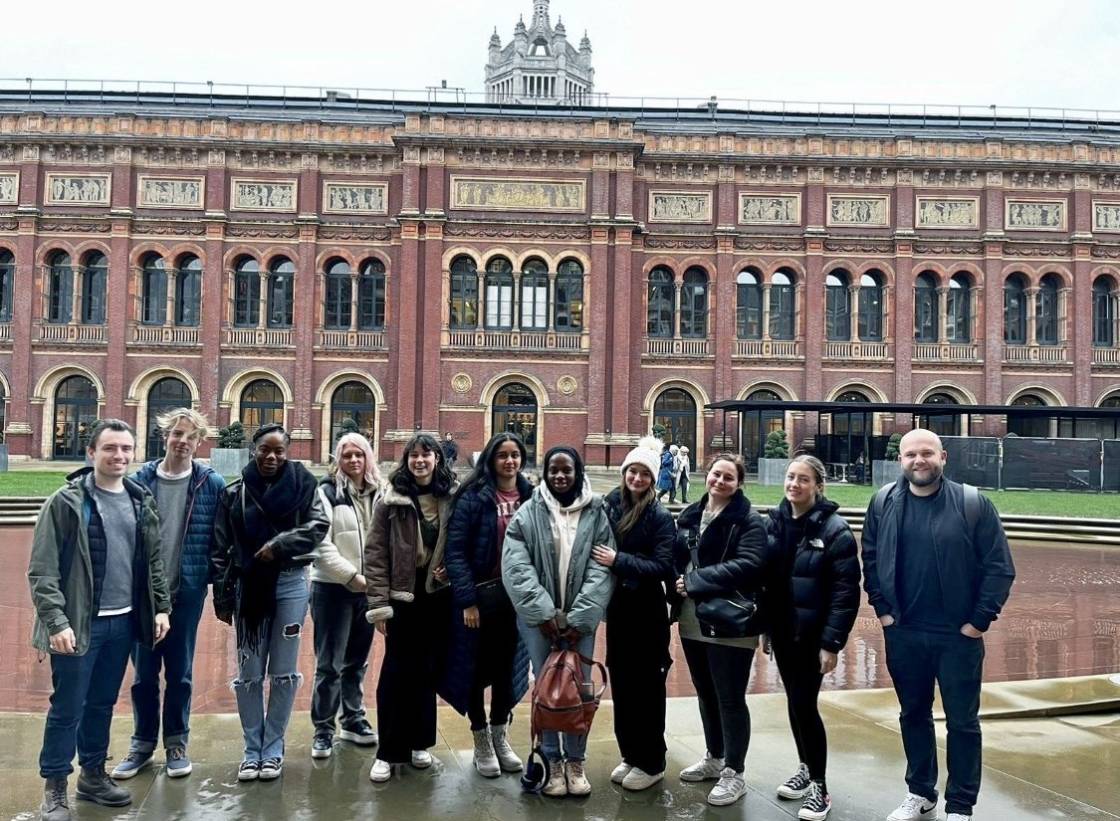
Social Sciences Café
Social Sciences Café (SSC) is a series of events within the Department of Criminology, Politics and Sociology (CPS) which aims to help prepare students for life after graduation. Students can take part in seminars on employability skills and postgraduate studies; speaker and panel events on topical issues that engage the broader Kingston University (KU) community; and social events linked to key moments in the academic calendar.
SSC is often visited by KU graduates working in the public, private and third sector in the UK and around the world, who are keen to share their career journeys and advice for students at an early stage of their career planning, as well as professionals for ‘meet the employer' advice and networking sessions.
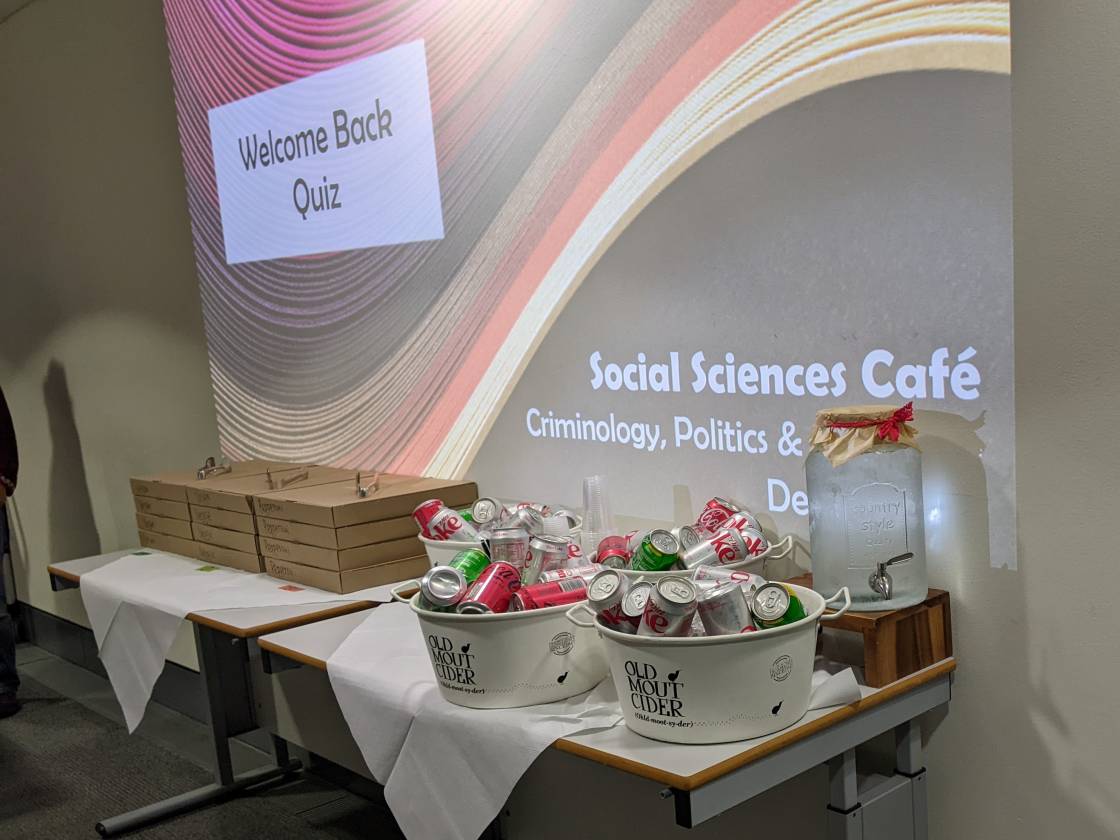
Specialist careers support
You will take part in an Assessment Centre Experience, providing the opportunity to experience the pathway to employment with tailored feedback to help develop your employability skills for the world of graduate employment.
- Develop your understanding of the jobs market, including current trends and opportunities, different recruitment processes and how to identify relevant roles
- Receive personalised feedback reports to help you to improve and progress
- Access additional webinars on top tips, employer expectations and best practice

Entry requirements
If you would like to join us through Clearing 2024, please call our Clearing line on 0800 0483 334 (or +44 020 8328 1149 if you are calling from outside the UK) and speak to our friendly and knowledgeable hotliners who will be able to provide information on available courses and will guide you through your options.
Please note the entry requirements listed below are for 2025 entry only.
Teaching and assessment
Scheduled learning and teaching on this course includes timetabled activities including lectures, seminars and small group tutorials.
Who teaches this course?
You will be taught by an experienced teaching team whose expertise and knowledge are closely matched to the content of the modules on this course. The team includes senior academics and professional practitioners with industry experience. Postgraduate research students may also contribute to the teaching of seminars under the supervision of the module leader.
The following group of staff members are currently involved in the delivery of different elements of this course. This pool is subject to change at any time within the academic year.
Course fees and funding
Additional costs
Depending on the programme of study, there may be extra costs that are not covered by tuition fees which students will need to consider when planning their studies. Tuition fees cover the cost of your teaching, assessment and operating University facilities such as the library, access to shared IT equipment and other support services. Accommodation and living costs are not included in our fees.
Where a course has additional expenses, we make every effort to highlight them. These may include optional field trips, materials (e.g. art, design, engineering), security checks such as DBS, uniforms, specialist clothing or professional memberships.
After you graduate
Graduates work in social research, teaching, policymaking, the charity sector, local government, human resource management and retail. This degree is an excellent foundation for postgraduate study in sociology and related areas.
A sociology degree prepares students for life after university by teaching key transferable skills that employers are looking for. These include problem-solving and analytic skills; critical thinking and reasoning; team working, project planning and leadership; self-motivation and working independently; managing and interpreting data sets; written and oral communication, including public speaking.
Some graduates have continued their academic studies doing a masters course and doctoral studies in the UK and internationally.
Key information set
The scrolling banner(s) below display some key factual data about this course (including different course combinations or delivery modes of this course where relevant).
Course changes and regulations
The information on this page reflects the currently intended course structure and module details. To improve your student experience and the quality of your degree, we may review and change the material information of this course. Course changes explained.
Programme Specifications for the course are published ahead of each academic year.
Regulations governing this course can be found on our website.



